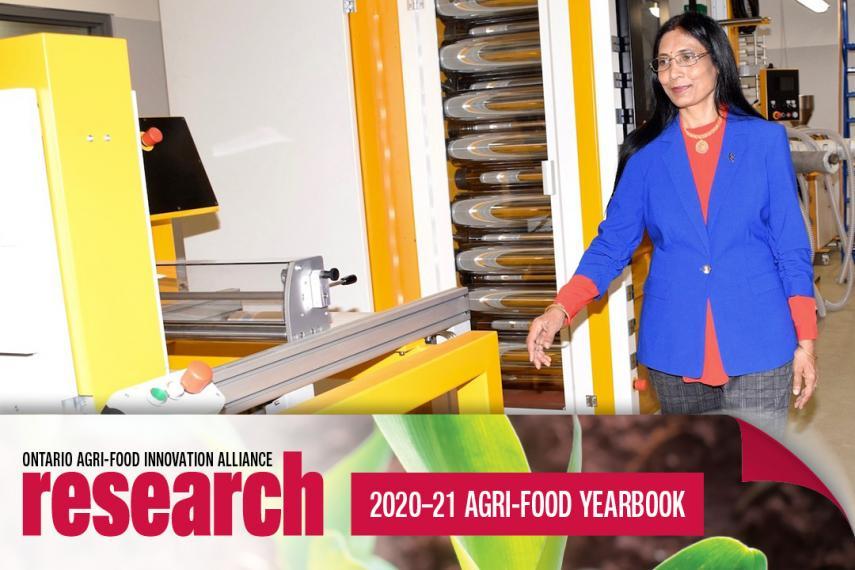Biocomposites make vehicle manufacturing greener

Plastic has helped the automotive industry trim millions of kilograms of fuel-wasting weight from vehicles and keep production costs in check. But as the spotlight falls on other environmental aspects of car and truck manufacturing, the University of Guelph is showing leadership in creating eco-efficient materials that can further reduce costs and waste.
Biocomposites combine bio-based fibres and other bio-based materials with plastic resins to create new materials that are more sustainable. Bio-based materials come from renewable sources, including wheat straw, corn husks, and soy and corn processing co-products. These biocomposites are being used in injection moulding and 3-D-printing applications to make complex automotive components sustainably, quickly and accurately.
“Biocomposites and bio-based materials can substitute for conventional plastic materials in commercial applications to improve sustainability,” says Dr. Manjusri Misra, a professor in the School of Engineering and Tier 1 Canada Research Chair in Sustainable Biocomposites. A lead researcher in the University’s Bioproducts Discovery and Development Centre (BDDC), she is cross-appointed in the Department of Plant Agriculture.
This technology supports the circular economy, in which waste is eliminated or reduced through reusing, recycling and repurposing materials. Misra and her team aim to create biocomposite substitutes for intricate plastic vehicle parts, including parts for consoles and door panels.
“The goal is to provide a reduced carbon footprint on the part of the vehicle and lighter-weight options that reduce fuel and energy consumption over the lifetime of the vehicle,” says Misra.
She says 3-D polymer biocomposites with natural fibres can function like petroleum-based plastics for automotive applications. However, there are challenges in ensuring that materials meet industry requirements for automotive applications, including quality and safety standards for all components.
The U of G team has a proven track record in bioproduct development, including another class of products designed to reduce plastic pollution, notably in landfills and the world’s oceans. Well-known, award-winning bioproducts developed by the BDDC include the world’s first certified compostable coffee pods and a headlight housing part in the 2020 Ford Lincoln model.
Misra’s research team for this 3-D-printing project includes co-principal investigators Dr. Amar Mohanty, director of the BDDC and professor in the Department of Plant Agriculture (cross-appointed in the School of Engineering); and Dr. Jun Yang, a professor at Western University. Industry collaborators are Ford Motor Co., Competitive Green Technologies, Ontario Biomass Producers Co-operative Inc., MixShop Inc., Bioindustrial Innovation Canada and the University of Guelph’s Research Innovation Office.
This research is funded by the Ontario Ministry of Agriculture, Food and Rural Affairs through the Ontario Agri-Food Innovation Alliance.
This article originally appeared in the 2021 Agri-Food Yearbook edition of Research magazine.
Written by Maleeka Singh.